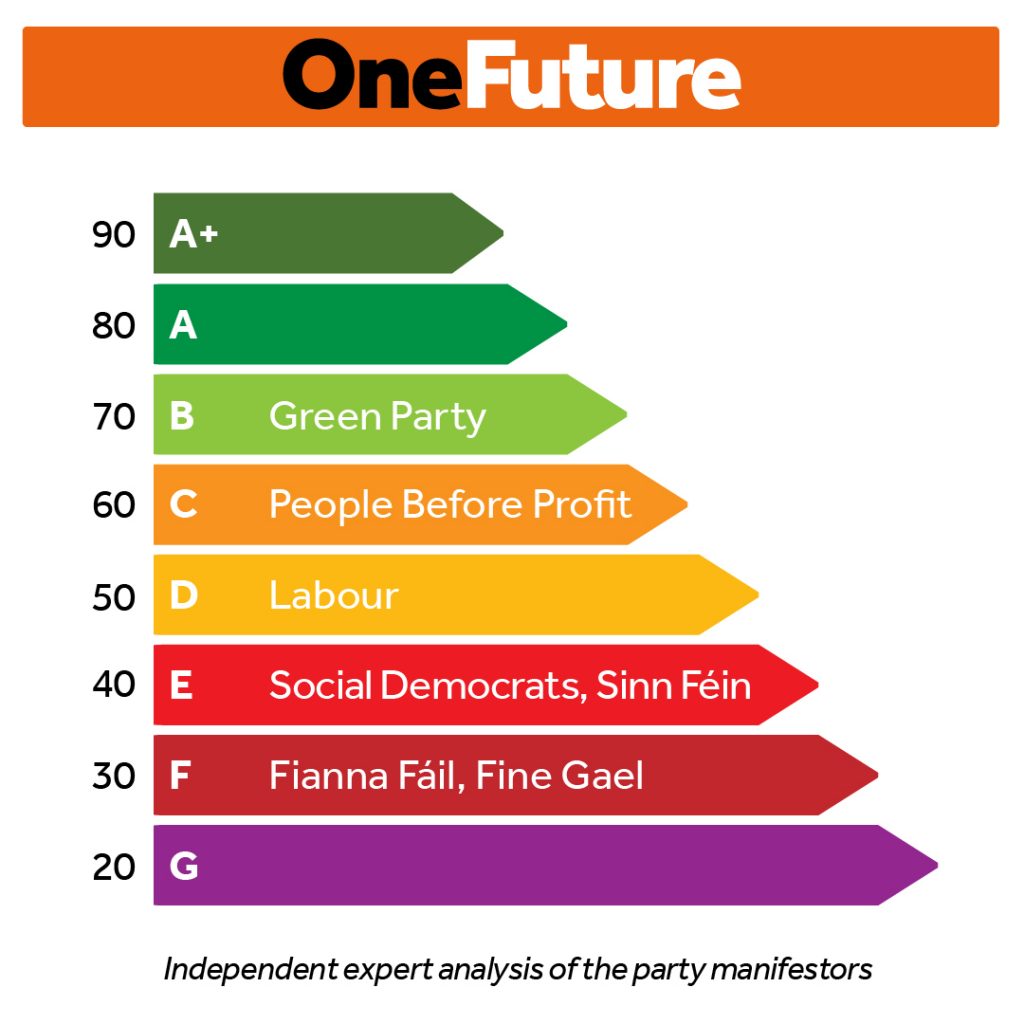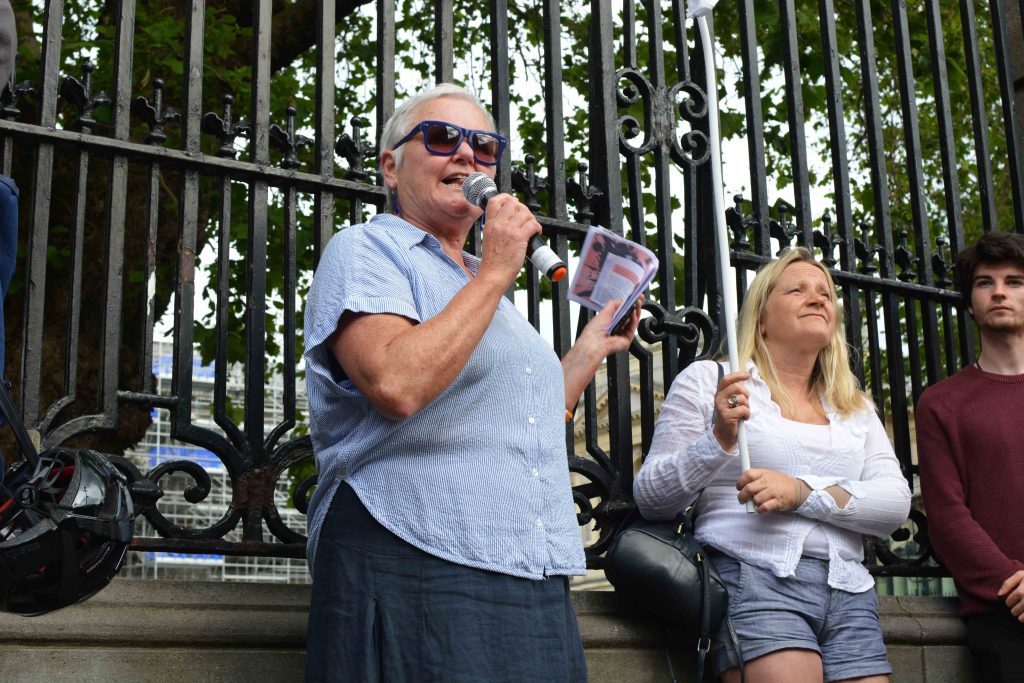Bigger parties furthest off track on climate, manifesto analysis

February 3rd, 2020
The One Future campaign has published analysis that finds the three parties leading in the general election have the weakest and vaguest promises on climate action in their manifestos.
The campaign – backed by dozens of local and national groups from the women’s, youth, faith, environmental and overseas aid sectors – asked three independent climate policy experts to score the manifestos against One Future’s nine policy demands.
Policy asks include the delivery of annual emissions reductions of at least eight per cent per year on average over the lifetime of the new Government and legal commitment to a national net-zero target for the whole economy.
Substantial investment in public and active transport, including a chunk of funding for a rural transport programme, is another key policy aim, together with a deep retrofit programme for all local authority housing.
The campaign is also calling for far greater support for community renewable energy schemes and microgeneration, as well as a ban on coal and peat for electricity generation by the end of next year, together with bans on the new exploration licences and imports of fracked gas.
The campaign is also calling for agricultural, forestry and peatland policy that is in line with climate and biodiversity objectives, including support to reform the Common Agricultural Policy to reward farmers for close-to-nature farming practices.
The seven party manifestos were assessed by climatologist Professor John Sweeney, environmental scientist Dr Cara Augustenborg, and Sadhbh O’Neill, a policy adviser to the members of the special all-party Oireachtas Committee on climate action last year.
Not surprisingly, the best performer against the campaign’s policy asks was the Green Party, coming in with a score of 79 out of 100, followed by People Before Profit (including Solidarity and Rise), with the left-leaning party outlining a very ambitious climate manifesto that would see a radical 10 per cent reduction in emissions per annum over the next decade.
Labour scored 55, followed by Social Democrats at 45, although the party does have one fo the most detailed plans to deal with the biodiversity crisis. The three largest parties, Sinn Fein (43), Fianna Fail (36) and Fine Gael (34) scored the lowest in the rankings measured against One Future’s specific campaign goals.

Larger parties not joining dots
Dr Cara Augustenborg, who also previously scored the manifestos at the 2016 General Election, said that, while all parties have improved their policies since the last general election, “it’s disappointing the larger parties still don’t seem to connect the dots”.
“They are promising more climate action on the one hand, while at the same time promising more regional airports, for example, and not committing to the level of emissions reductions we need to help solve the problem. In an effort to promise something for everyone in the audience, they seem to have lost sight that the climate crisis is the biggest challenge humanity faces,” she added.
Professor John Sweeney of Maynooth University said that the various manifestos indicate an “encouraging awareness of the seriousness and scope of the climate change challenge”. He added, however, that the “hard choices necessary to implement the aspirations are less in evidence”.
“Ultimately, radical emission cuts by all sectors of society and of businesses will be necessary in the short and medium terms to tackle effectively the climate and biodiversity emergency.
“No muddying of the water or excuses for any sector will gain currency with what is an increasingly informed electorate concerned for their future wellbeing and that of their children,” he said.
The analysis comes as a poll for the Times Ireland showed that the environment is the fourth most influential issue for voters, behind health, housing and the cost of living, but a little ahead of pensions, the economy, tax and crime.

People Before Profit left out of climate debate
After much criticism of how the climate issue was framed in the first two Leaders’ Debates, tonight’s Claire Byrne Live is dedicated to a discussion of the climate challenge the next Dáil faces.
People Before Profit’s climate spokesperson Brid Smith outlined her frustration that she is not scheduled to appear on the debate this evening, with the results of the One Future analysis making the party’s case for inclusion valid.
“People Before Profit have been to the fore in raising environment issues in the in the Dáil,” Ms Smith said, pointing to her role in introducing legislation that would have banned new exploration licenses, as well as her opposition to LNG imports.
I led the challenge to the introduction of carbon taxes, arguing that it would do little to stop climate change but would penalise the poor [and] have been to the fore in pushing or a Just Transition for Bord na Mona workers,” she added.
“People Before Profit are the only party proposing free and frequent public transport which would have a dramatic affect in getting people out of their cars and reducing transport emissions,” Ms Smith said.
“By excluding a left voice, RTÉ are seeking to drive people towards an official consensus that fails to tackle the bigger need for system change.”
[x_author title=”About the Author”]







